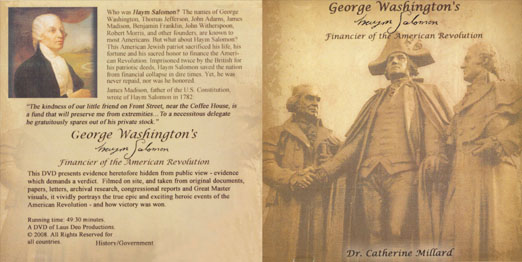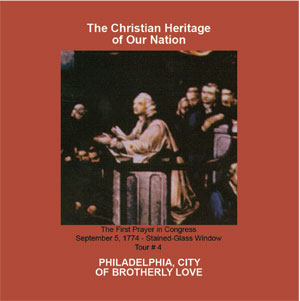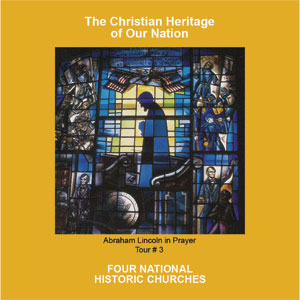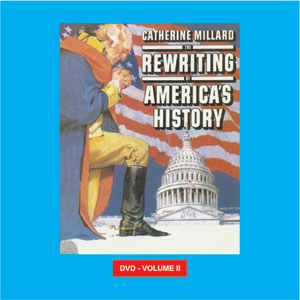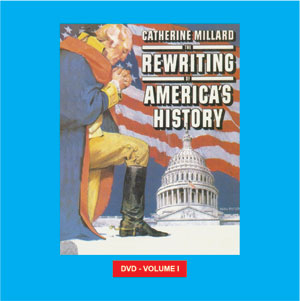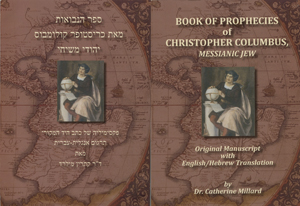| 1745 |
Born on 24th December, at Bayberry, Pennsylvania |
| 1760 |
Graduated from the College of New-Jersey (Princeton) |
| 1768 |
Graduated from the University of Edinburgh, M.D. |
1768
|
Recruited (together with Richard Stockton), Rev. John
Witherspoon, D.D., for the Presidency of Princeton. |
| 1769 |
Professor of Chemistry, College of Philadelphia |
| 1770 |
Published “A Syllabus of a Course of Lectures on
Chemistry” |
1775
|
Co-founder with Benjamin Franklin of the first
Anti-Slavery Society |
1776
|
Member of the Continental Congress
Signed the Declaration of Independence |
1777-78
|
Physician-General of the Continental Army at
Valley Forge, Pennsylvania |
| 1786 |
Founded the first free Medical Clinic in America |
| 1787 |
Member of the Pennsylvania Ratification Convention |
| 1791- |
Professor of Medicine, College of Philadelphia |
| 1797-1813 |
Treasurer, United States Mint |
| 1813 |
Died on 19th April in Philadelphia, Pennsylvania |
Benjamin Rush, Professor of Chemistry and Medicine at the College of Philadelphia; Founder of the first free Medical Clinic in America; Physician-General of the Continental Army and author of a number of books on Chemistry and Medicine, was a famous scientist of his day. I have studied that Science and Christianity are incompatible. What was this founding father’s stand on the Gospel?
In a letter written to the Rev. J. Belknap, D.D. of Boston, dated March 10th, 1791, Benjamin Rush gives a Defense on the Use of the Bible in Schools, which establishes this founding father’s belief in the authority of the Scriptures, and the Truth of the Gospel, as follows:
“Philadelphia,
March 10, 1791.
Dear Sir,
It is now several months since I promised to give you my reasons for preferring the Bible as a school book to all other compositions. I shall not trouble you with an apology for my delaying so long to comply with my promise, but shall proceed immediately to the subject of my letter. Before I state my arguments in favor of teaching children to read by means of the Bible, I shall assume the five following propositions:
1. That Christianity is the only true and perfect religion; and that in proportion as mankind adopt its principles and obey its precepts, they will be wise and happy.
2. That a better knowledge of this religion is to be acquired by reading the Bible than in any other way.
3 That the Bible contains more knowledge necessary to man in his present state than any other book in the world.
4. That knowledge is most durable, and religious instruction most useful, when imparted in early life.
5. That the Bible, when not read in schools, is seldom read in any subsequent period of life.
My arguments in favor of the use of the Bible as a school book are founded in the constitution of the human mind.
I. The memory is the first faculty which opens in the minds of children. Of how much consequence, then, must it be to impress it with the great truths of Christianity, before it is preoccupied with less interesting subjects!
II. There is a peculiar aptitude in the minds of children for religious knowledge. I have constantly found them in the first six or seven years of their lives, more inquisitive upon religious subjects than upon any others: and an ingenious instructor of youth has informed me, that he has found young children more capable of receiving just ideas upon the most difficult tenets of religion than upon the most simple branches of human knowledge. It would be strange if it were otherwise; for God creates all His means to suit His ends. There must of course be a fitness between the human mind and the truths which are essential to its happiness…
VII. There is a native love of truth in the human mind. Lord Shaftesbury says, that “truth is so congenial to our minds, that we love even the shadow of it;” And Horace, in his rules for composing an epic poem, establishes the same law in our natures, by advising the “fictions in poetry to resemble truth.” Now the Bible contains more truths than any other book in the world: so true is the testimony that it bears of God in His works of creation, providence, and redemption that it is called Truth itself, by way of pre-eminence above things that are only simply true. How forcibly are we struck with the evidences of truth, in the history of the Jews, above what we discover in the history of other nations? Where do we find a hero, or an historian, record his own faults or vices except in the Old Testament? …
My second argument in favor of the use of the Bible in schools is founded upon an implied command of God, and upon the practice of several of the wisest nations of the world.
In the 6th chapter of Deuteronomy, we find the following words, which are directly to my purpose: “And thou shalt love the Lord thy God with all thy heart, and with all thy soul, and with all thy might. And these words, which I command thee this day, shall be in thine heart. And thou shalt teach them diligently unto thy children, and shalt talk of them when thou sittest in thine house, and when thou walkest by the way, and when thou liest down, and when thou risest up…”
We err not only in human affairs, but in religion likewise, only because we “do not know the Scriptures.” Immense truths, I believe, are concealed in them. The time, I have no doubt, will come when posterity will view and pity our ignorance of these truths, as much as we do the ignorance of the disciples of our Saviour, who knew nothing of the meaning of those plain passages in the Old Testament, which were daily fulfilling before their eyes…
But further, we err, not only in religion but in philosophy likewise, because we “do not know or believe the Scriptures.” The sciences have been compared to a circle of which religion composes a part. To understand any one of them perfectly, it is necessary to have some knowledge of them all. Bacon, Boyle, and Newton, included the Scriptures in the inquiries to which their universal geniuses disposed them, and their philosophy was aided by their knowledge in them. A striking agreement has been lately discovered between the history of certain events recorded in the Bible and some of the operations and productions of nature, particularly those which are related in Whitehurst’s observations on the deluge – in Smith’s account of the origin of the variety of color in the human species – and in Bruce’s travels. It remains yet to be shown how many other events related in the Bible accord with some late important discoveries in the principles of medicine. The events and the principles alluded to, mutually establish the truth of each other.
From the discoveries of the Christian philosophers, whose names have been last mentioned, I have been led to question whether most harm has been done to Revelation, by those divines who have unduly multiplied the objects of reason in explaining the Scriptures…
The curiosity and capacities of young people for the mysteries of religion, awaken much sooner than is generally supposed. Of this we have two remarkable proofs in the Old Testament. The first is mentioned in the twelfth chapter of Exodus. “And it shall come to pass when your children shall say unto you, What mean you by this service? That ye shall say, It is the sacrifice of the Lord’s Passover, who passed over the houses of the children of Israel in Egypt, when He smote the Egyptians, and delivered our houses.” A second proof of the desire of the children to be instructed in the mysteries of religion, is to be found in the sixth chapter of Deuteronomy. “And when thy son asketh thee in the time to come, saying, What mean the testimonies – and the statutes – and the judgments which the Lord our God hath commanded you? Then thou shalt say unto thy son, We were Pharaoh’s bondmen in Egypt, and the Lord our God brought us out of Egypt with a mighty hand.”…
… Let us not be wiser than our Maker. If moral precepts alone could have reformed mankind, the mission of the Son of God into our world, would have been unnecessary. He came to promulgate a system of doctrines, as well as a system of morals. The perfect morality of the Gospel rests upon a doctrine, which, though often controverted, has never been refuted; I mean the vicarious life and death of the Son of God. This sublime and ineffable doctrine delivers us from the absurd hypothesis of modern philosophers concerning the foundation of moral obligation, and fixes it upon the eternal and self-moving principle of LOVE. It concentrates a whole system of ethics in a single text of Scripture, “A New commandment I give unto you, that ye love one another, even as I have loved you.” By withholding the knowledge of this doctrine from children, we deprive ourselves of the best means of awakening moral sensibility in their minds. We do more; we furnish an argument, for withholding from them a knowledge of the morality of the Gospel likewise; for this in many instances, is as supernatural, and therefore as liable to be controverted, as any of the doctrines or miracles which are mentioned in the New Testament. The miraculous conception of the Saviour of the world by a virgin is not more opposed to the ordinary course of natural events, nor is the doctrine of the atonement more above human reason, than those moral precepts, which command us to love our enemies or to die for our friends…
The Bible is a cheap book, and is to be had in every bookstore. It is, moreover, esteemed and preferred by all sects; because each finds peculiar doctrines in it. It should therefore be used in preference to any abridgements of it, or histories extracted from it…
The present fashionable practice of rejecting the Bible from our schools, I suspect, has originated with deists. They discover great ingenuity in this new mode of attacking Christianity. If they proceed in it, they will do more in half a century, in extirpating our religion, than Bolingbroke or Voltaire could have effected in a thousand years….
It is with great pleasure, that I have observed the Bible to be the only book read in the Sunday Schools in England. We have adopted the same practice in the Sunday Schools lately established in this city. This will give our religion (humanly speaking) the chance of a longer life in our country. We hear much of the persons educated in free schools in England, turning out well in the various walks of life. I have inquired into the cause of it, and have satisfied myself that it is wholly to be ascribed to the general use of the Bible in those schools…
But contemplating the political institutions of the United States, I lament, that we waste so much time and money in punishing crimes, and take so little pains to prevent them. We profess to be Republicans, and yet we neglect the only means of establishing and perpetuating our Republican forms of government, that is, the universal education of our youth in the principles of Christianity by means of the Bible; for this Divine book, above all others, favors that equality among mankind, that respect for just laws, and all those sober and frugal virtues which constitute the soul of Republicanism…
Perhaps a further apology may be necessary for my having presumed to write upon a subject so much above my ordinary studies. My excuse for it is that I thought a single mite from a member of a profession, which has been frequently charged with skepticism in religion, might attract the notice of persons who had often overlooked the more ample contributions, upon this subject, of gentlemen of our profession.
With great respect, I am, dear Sir,
Your sincere friend,
BENJAMIN RUSH.” 1
To learn more, click here.
________________________
Bibliography
1
Rush, Benjamin. A Defense of the Use of the Bible as a School-Book. In a Letter from the celebrated Doctor Rush of Philadelphia to the Reverend J. Belknap, D.D. of Boston. Philadelphia, March 10, 1791. Library of Congress, Rare Book Collection.

